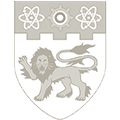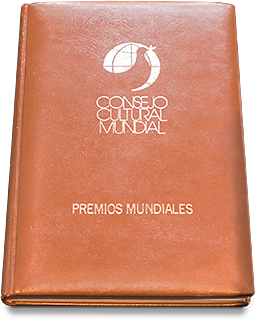
 Albert Einstein World Award of Science 2013
Albert Einstein World Award of Science 2013
Field of Research: Genetics and molecular genetics
Date: 02 October 2013
Place of Ceremony: Nanyang Auditorium
Host Institution: Nanyang Technological University
Host Country: Singapore
Singapore, Singapore. October 2013. The members of the Interdisciplinary Committee have chosen Professor Sir Paul Nurse as the winner of the 2013 Albert Einstein World Award of Science for his outstanding and continuing career as a scientific leader, as well as his accomplishments as one of the world’s leading biochemists and geneticists.
Paul Nurse’s achievements meet the criteria for the Science Award of bringing “true benefit and wellbeing to humankind” for his long-term work as a scientific leader of several prestigious organizations, with significant influence on both health and education, marked by a strong commitment to excellence in learning, research and knowledge transfer.
The Award recognizes his contributions on how the eukaryotic cell cycle is controlled and how cell shape and cell dimensions are determined, along with his major work on cyclin-dependent protein kinases and how they regulate cell reproduction – research that has provided a wider understanding of biology and medicine in the field of cancer.
Professor Paul Nurse is one of the world’s foremost biochemists and geneticists. In the 1980s, he made a scientific breakthrough when he identified a number of key regulatory proteins that control the yeast cell cycle. His further studies have led to the currently widely accepted models that conclude strong similarities among proteins, their activities and their biochemical modes of regulation throughout all eukaryotic organisms. His research is especially important for the understanding of biology and medicine in respect to cancer and other serious diseases, bringing us closer to prevention and a cure.
Paul Nurse has received wide recognition for his scientific excellence. He received in 2001 Nobel Prize in Medicine (shared with Tim Holt and Lee Hartwell) and has been awarded a number of other prizes and recognitions, including the Albert Lasker Award and the Royal Society’s Royal and Copley Medals. He was knighted in Great Britain in 1999 for his services in cancer research and cell biology and was awarded the French Légion d’Honneur in 2002. He was Professor of Microbiology at the University of Oxford, CEO of the Imperial Cancer Research Fund and Cancer Research UK, as well as President of the Rockefeller University in New York. He is at present Director and Chief Executive of the Francis Crick Institute and President of the Royal Society.


